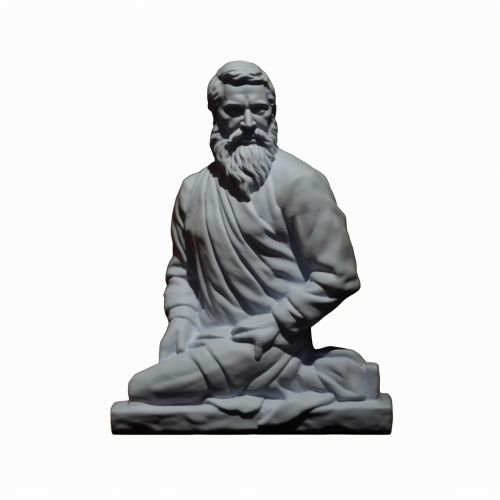Epicurus
Life
Epicurus was born in the Athenian settlement on the Aegean island of Samos in February 341 BC. His parents, Neocles and Chaerestrate, were both Athenian-born, and his father was a citizen. Epicurus grew up during the final years of the Classical Period in Ancient Greece. He was about seven years old when Alexander the Great crossed the Hellespont into Persia. As a young man, he studied philosophy for four years under the Platonist teacher Pamphilus. At the age of 18, he joined his parents on their migration to the Athenian settlement of Colophon.


Philosophy
Epicurus is a key figure in the development of science and the scientific method because of his insistence that nothing should be believed, except that which was tested through direct observation and logical deduction. Believing that the goal of life was to attain peace of mind and aponia (the absence of pain), he advocated a lifestyle in harmony with nature and avoidance of unnecessary desire, ambition, and the pursuit of wealth and fame. Instead, he advocated for the pursuit of philosophical study, fulfilling friendships, and the enjoyment of simple pleasures; in this way, one could attain the highest form of happiness, according to Epicurus.
Epicureanism
Epicureanism is a system of philosophy based on the teachings of Epicurus, founded around 307 BC. It teaches that the greatest good is to seek modest pleasures in order to attain a state of tranquillity, freedom from fear ("ataraxia") and absence from bodily pain ("aponia"). This combination of states is held to constitute happiness in its highest form. Epicureanism was originally a challenge to Platonism, though later it became the main opponent of Stoicism. Epicurus and his followers were known for eating simple meals and discussing a wide range of philosophical subjects. He openly allowed women to join the school as a matter of policy. Epicureanism became fairly popular in its own time, and continued to be influential long after the death of Epicurus.
Legacy
Epicurus's teachings represented a departure from the other major Greek thinkers of his time, and he is known for founding the school of philosophy known as Epicureanism. Only a few fragments and letters remain of Epicurus's 300 written works. Much of what is known about Epicurean philosophy derives from later followers and commentators. Despite this, his ideas on atomic theory are considered foundational to modern science and his philosophy continues to be influential today.
